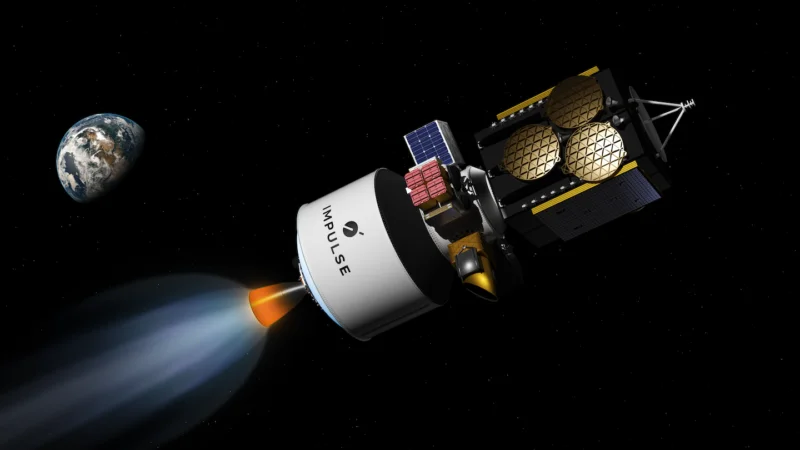
SES Partners with Impulse Space for Rapid Satellite Deployment to GEO
In a groundbreaking move set to reshape satellite deployment, SES, a leading global satellite operator, has inked a multi-launch agreement with Impulse Space, a pioneering company specializing in in-space transportation. The collaboration aims to leverage Impulse Space's innovative Helios kick stage to expedite the delivery of SES satellites to medium Earth orbit (MEO) and geostationary orbit (GEO).
This partnership addresses a critical challenge in the space industry: the often slow and costly process of transferring satellites from low Earth orbit (LEO) to their operational orbits. Traditionally, this transfer can take weeks or even months using conventional kick stages or electric propulsion. Impulse Space's Helios platform promises to significantly reduce this transit time, potentially delivering payloads to GEO in under eight hours.

The first mission is slated for 2027 and will involve a medium-class rocket placing the Helios kick stage, carrying a four-ton SES satellite, into LEO. From there, Helios will execute a rapid transfer to GEO. The specific rocket and satellite involved in the initial launch remain undisclosed. The agreement also includes options for future missions, providing SES with the flexibility to launch satellites to their desired orbits on demand.
"We believe MEO and GEO play a critical role in the space economy, but operators today face the challenges of slow, expensive, and inflexible access to these essential orbits," stated Tom Mueller, founder and chief executive of Impulse Space. He emphasized that Helios is designed to rapidly and reliably move large payloads to high-energy orbits.
Adel Al-Saleh, chief executive of SES, echoed this sentiment, stating, "Today, we’re not only partnering with Impulse to bring our satellites faster to orbit, but this will also allow us to extend their lifetime and accelerate service delivery to our customers." He also highlighted SES's history of embracing innovation, noting their early adoption of SpaceX's Falcon 9 rocket and reused boosters.

While SES is the first commercial customer for a dedicated Helios mission, Impulse Space has already secured other contracts, including one with French startup Space Network Services for a geostationary rideshare program. They also have a $34.5 million contract with the U.S. military for the Victus Surgo and Victus Salo missions, which will utilize Impulse's smaller Mira vehicle, transported to GEO on a Helios tug for Victus Surgo.
The partnership between SES and Impulse Space marks a significant step towards more efficient and agile satellite deployment. By leveraging the speed and precision of the Helios kick stage, SES aims to enhance its service delivery and extend the operational lifespan of its satellites.
What are your thoughts on this innovative approach to satellite deployment? Do you think this partnership will set a new standard for the industry? Share your opinions in the comments below!